 Search by Keyword
|
“DEVIL IN HER HEART”
(Richard Drapkin)
“Because there were a lot of record companies in America, lots of records seemed only to be distributed on a local basis…However, many of the small companies were affiliated with major labels that had distribution in the UK, so some obscure American records ended up being sold in the UK but unknown in America.”
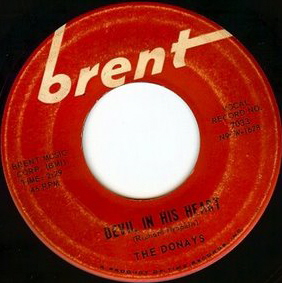 This explanation by George Harrison sheds a lot of light on how an obscure song like “Devil In Her Heart” ended up on a million selling British and American album. This song was originally titled “Devil In His Heart” and recorded by a young girl-group out of Hamtramck, Michigan called The Donays. This record, which was the only one recorded by the group, was released on the local Detroit label “Correc-tone Records” in mid 1962. This small record company, as George referred to above, had an affiliation with a larger label from New York City, Brent Records, who picked up the record for national distribution. Although its b-side, “Bad Boy,” received substantial airplay in the Michigan area, the single missed the US charts. The single did get picked up by the UK label Oriole Records and was released there, but it didn't chart in Britain either. This explanation by George Harrison sheds a lot of light on how an obscure song like “Devil In Her Heart” ended up on a million selling British and American album. This song was originally titled “Devil In His Heart” and recorded by a young girl-group out of Hamtramck, Michigan called The Donays. This record, which was the only one recorded by the group, was released on the local Detroit label “Correc-tone Records” in mid 1962. This small record company, as George referred to above, had an affiliation with a larger label from New York City, Brent Records, who picked up the record for national distribution. Although its b-side, “Bad Boy,” received substantial airplay in the Michigan area, the single missed the US charts. The single did get picked up by the UK label Oriole Records and was released there, but it didn't chart in Britain either.
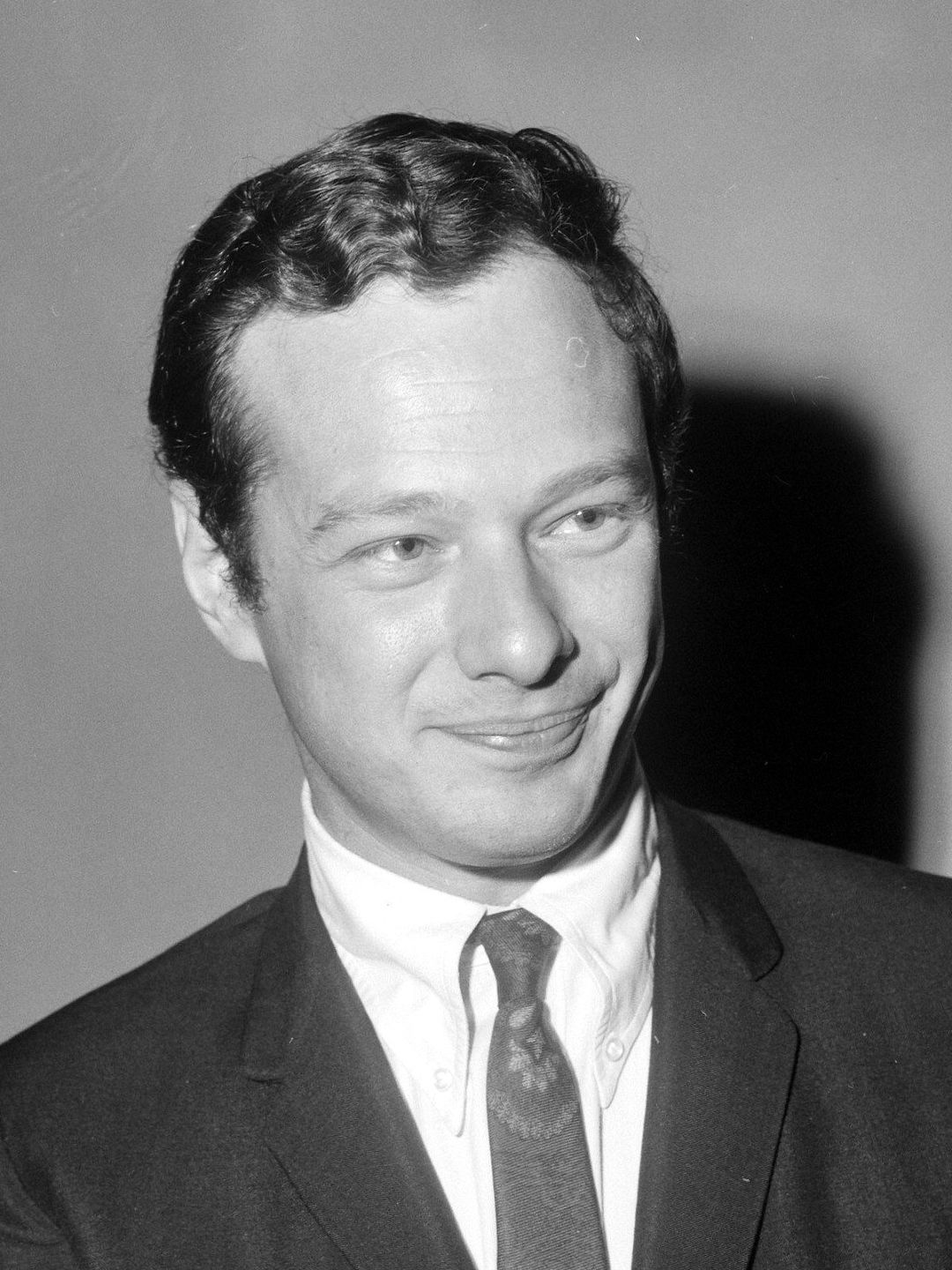 “Brian (Epstein) had had a policy at NEMS (record store) of buying at least one copy of every record that was released,” George Harrison continues, “consequently he had records that weren’t hits in Britain, weren’t even hits in America. Before we were going to a gig, we’d meet in the record store, after it had shut, and we’d search the racks like ferrets to see what new ones were there…’Devil In Her Heart’ and Barrett Strong’s ‘Money’ were records that we’d picked up and played in the shop and thought were interesting." The Beatles discovered the record in October of 1962 and shortly thereafter incorporated it into their live performances. “Brian (Epstein) had had a policy at NEMS (record store) of buying at least one copy of every record that was released,” George Harrison continues, “consequently he had records that weren’t hits in Britain, weren’t even hits in America. Before we were going to a gig, we’d meet in the record store, after it had shut, and we’d search the racks like ferrets to see what new ones were there…’Devil In Her Heart’ and Barrett Strong’s ‘Money’ were records that we’d picked up and played in the shop and thought were interesting." The Beatles discovered the record in October of 1962 and shortly thereafter incorporated it into their live performances.
 The Donays performing at the "Twenty Grand" club in Detroit, circa 1962
|
Songwriting History
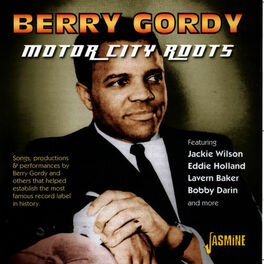 The Donays were originally a five piece singing group who were school friends. Its members were Janice Guinn, her sister Armie Guinn, Yvonne Symington, Michelle Ray and Mary (last name unknown). “We were discovered at a high school talent show, Hamtramck High,” remembers Janice Guinn. “The song was ‘Please Mister Postman,’” she relates about their talent show offering. After they acquired a manager, they were then booked as local performers, one notable show being at the “Twenty Grand” club in Detroit, Michigan. “According to our managers, after this performance, Berry Gordy was interested in signing us up with Motown. However, they decided to go with Correc-tone Studios’” The Donays were originally a five piece singing group who were school friends. Its members were Janice Guinn, her sister Armie Guinn, Yvonne Symington, Michelle Ray and Mary (last name unknown). “We were discovered at a high school talent show, Hamtramck High,” remembers Janice Guinn. “The song was ‘Please Mister Postman,’” she relates about their talent show offering. After they acquired a manager, they were then booked as local performers, one notable show being at the “Twenty Grand” club in Detroit, Michigan. “According to our managers, after this performance, Berry Gordy was interested in signing us up with Motown. However, they decided to go with Correc-tone Studios’”
 Richard Drapkin, the composer of "Devil In His Heart," was a songwriter and recording artist hailing from the Detroit area. He worked with one of various up-and-coming labels from that locality, "Correc-tone." Richard Drapkin's professional songwriting career spans from the time of “Devil In His Heart” (1962) through till the mid ‘70s. His songs were covered by R&B/Soul artists such as Eddie Kendricks (“That’s All Behind You”), The Spinners (“Together We Can Make Such Sweet Music”), Larry Santos (“Now That I Have Found You”), Spanky Wilson (“I Think I’m Gonna Cry”) and Barbara Lewis (“That’s The Way I Like It”). Richard Drapkin, the composer of "Devil In His Heart," was a songwriter and recording artist hailing from the Detroit area. He worked with one of various up-and-coming labels from that locality, "Correc-tone." Richard Drapkin's professional songwriting career spans from the time of “Devil In His Heart” (1962) through till the mid ‘70s. His songs were covered by R&B/Soul artists such as Eddie Kendricks (“That’s All Behind You”), The Spinners (“Together We Can Make Such Sweet Music”), Larry Santos (“Now That I Have Found You”), Spanky Wilson (“I Think I’m Gonna Cry”) and Barbara Lewis (“That’s The Way I Like It”).
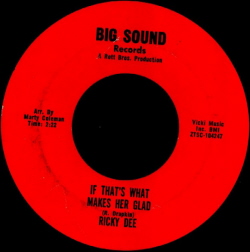 Richard Drapkin’s recording career has been under the alias Ricky Dee, such as his single “If That’s What Makes Her Glad” on Big Sound Records in 1965, among others. Richard Drapkin’s recording career has been under the alias Ricky Dee, such as his single “If That’s What Makes Her Glad” on Big Sound Records in 1965, among others.
The “Correc-tone” record label was launched in March 1962 with a single entitled “Let Me Be Your Boy” by an up-and-coming 21 year old vocalist named Wilson Pickett. Shortly thereafter, The Donays being additions to the label's roster. With the departure of Mary (last name unknown) from The Donays, the group was now a quartet, but there was one more change to be made. “My sister Armie Guinn was the lead singer in the group when we were discovered,” continues Janice Guinn, “however Yvonne (Symington) was the lead singer on our record.” With this personnel change decided, they were ushered into the recording studio to record two songs that Richard Drapkin wrote specifically for them: “Bad Boy” and “Devil In His Heart.” “We recorded another song called “You Always Talk About Tomorrow,” Janice Guinn recalls, “however it was never released because the group broke up."
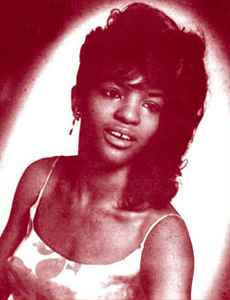 After the initial release of "Devil In His Heart" on the Correc-tone label, the single was picked up by the New York City label Brent Records and was thereby released on August 6, 1962. It seemed that another successful “girl group” had just been born. “‘Bad Boy’ was being played a lot, and they were talking about travelling,” vocalist Yvonne Symington relates. “The mothers wanted the girls to go to college. Michelle (Ray’s) mother was leary about the music world, so they dropped out.” After the initial release of "Devil In His Heart" on the Correc-tone label, the single was picked up by the New York City label Brent Records and was thereby released on August 6, 1962. It seemed that another successful “girl group” had just been born. “‘Bad Boy’ was being played a lot, and they were talking about travelling,” vocalist Yvonne Symington relates. “The mothers wanted the girls to go to college. Michelle (Ray’s) mother was leary about the music world, so they dropped out.”
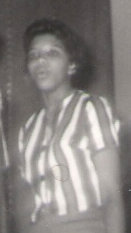 Donays member Janice Guinn remembers: “I was the youngest in the group, fifteen, and still in high school. My parents were interested in our education so my sister (Armie Guinn) and I dropped out of the group. I finished school and my sister moved to California to attend school out there. Michelle Ray also dropped out of the group to further her education, which only left Yvonne (Symington) who stayed with Correc-tone for a while.” Donays member Janice Guinn remembers: “I was the youngest in the group, fifteen, and still in high school. My parents were interested in our education so my sister (Armie Guinn) and I dropped out of the group. I finished school and my sister moved to California to attend school out there. Michelle Ray also dropped out of the group to further her education, which only left Yvonne (Symington) who stayed with Correc-tone for a while.”
So ended the history of The Donays after only one single release. Although the record did not chart in America, Oriole Records in Britain picked up the single for release overseas. If it weren’t for Brian Epstein buying a copy of the single for his NEMS record store in Liverpool, England, The Beatles wouldn’t have stumbled upon the "Devil In His Heart" and liked it enough to work up a rendition of the song, thereby making it the most successful composition in the Richard Drapkin songwriting catalog.
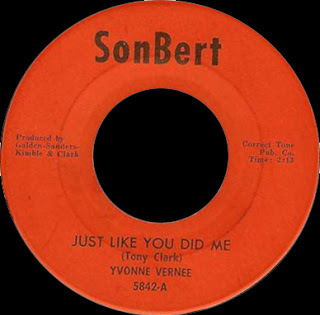 Yvonne Symington continued a music career with Correc-tone, releasing three singles under the name Yvonne Vernee, including the highly acclaimed Tony Clark song “Just Like You Did Me.” After retiring from the music business shortly thereafter, she was recruited to join the Motown group The Elgins in 1971 and toured Britain during their brief resurgence of popularity in that country. Yvonne Symington continued a music career with Correc-tone, releasing three singles under the name Yvonne Vernee, including the highly acclaimed Tony Clark song “Just Like You Did Me.” After retiring from the music business shortly thereafter, she was recruited to join the Motown group The Elgins in 1971 and toured Britain during their brief resurgence of popularity in that country.
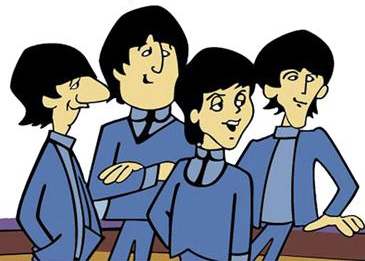 “Unfortunately we never received any royalties for the song that was released on The Beatles album,” Janice Guinne remembers. “We didn’t even know they recorded the song until one morning my sister Armie and I were watching The Beatles’ cartoons on television and heard our song ‘Devil In His (Her) Heart.’ Boy were we shocked!” “Unfortunately we never received any royalties for the song that was released on The Beatles album,” Janice Guinne remembers. “We didn’t even know they recorded the song until one morning my sister Armie and I were watching The Beatles’ cartoons on television and heard our song ‘Devil In His (Her) Heart.’ Boy were we shocked!”
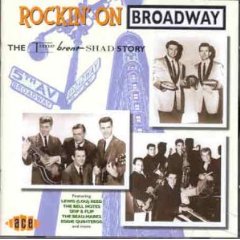 While “Devil In His Heart” by The Donays may never have been a hit anywhere, it has been a sought after record for decades because of The Beatles' version. It began to pop up in reissues in the '80s and can now be found on compilation discs, such as the 2000 ACE Records release “Rockin’ On Broadway: The Time, Brent, Shad Story.” While “Devil In His Heart” by The Donays may never have been a hit anywhere, it has been a sought after record for decades because of The Beatles' version. It began to pop up in reissues in the '80s and can now be found on compilation discs, such as the 2000 ACE Records release “Rockin’ On Broadway: The Time, Brent, Shad Story.”
Recording History
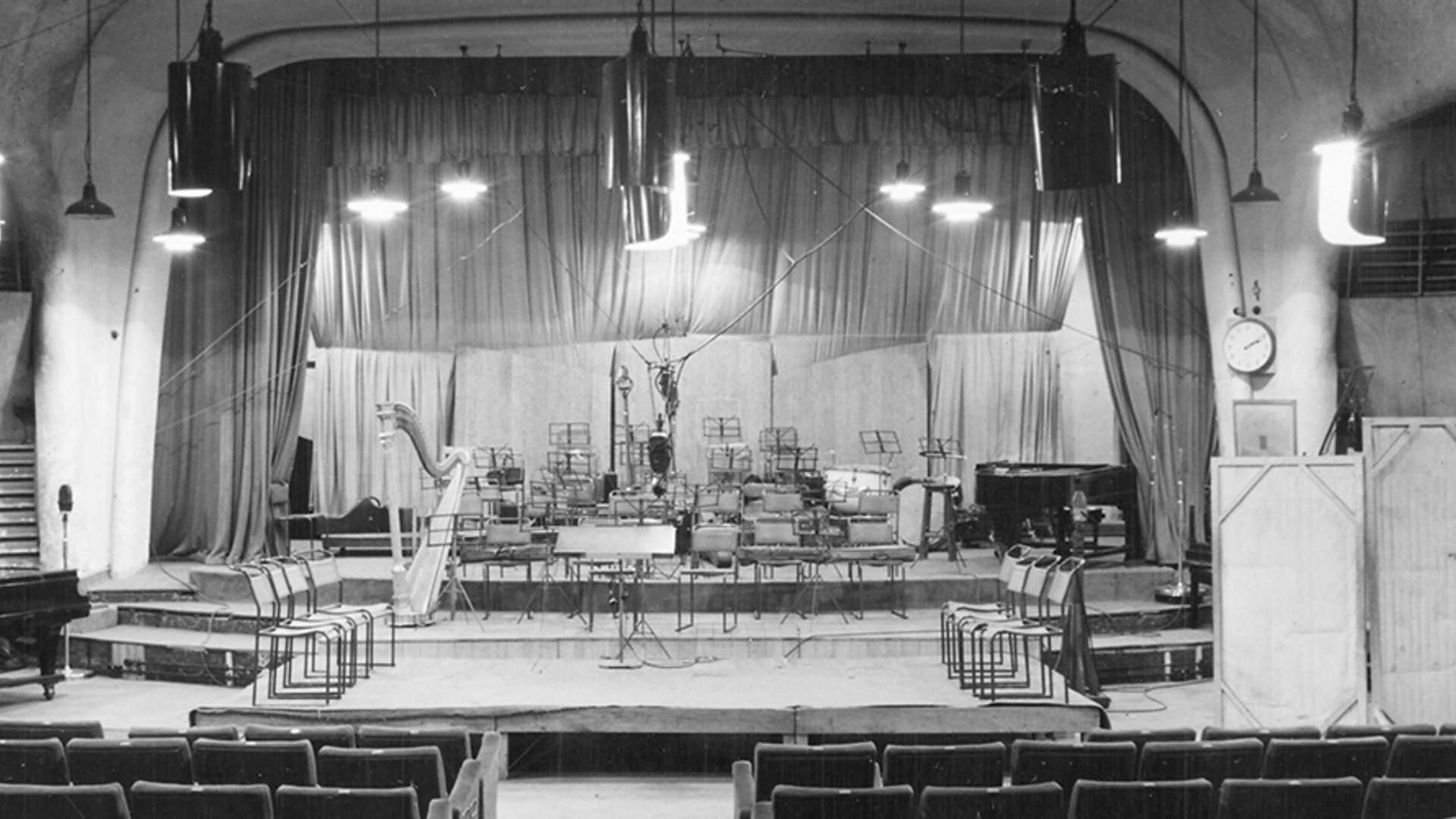 The first time The Beatles brought "Devil In Her Heart" into a professional recording studio was for a BBC radio broadcast. On July 16th, 1963, Terry Henebery produced their recording of the song at BBC Paris Studio in London between 8:45 and 10:30 pm for the tenth edition of their radio show “Pop Go The Beatles,” which aired on August 20th, 1963, between 5 and 5:29 pm and appears on the EP “Baby It’s You.” The first time The Beatles brought "Devil In Her Heart" into a professional recording studio was for a BBC radio broadcast. On July 16th, 1963, Terry Henebery produced their recording of the song at BBC Paris Studio in London between 8:45 and 10:30 pm for the tenth edition of their radio show “Pop Go The Beatles,” which aired on August 20th, 1963, between 5 and 5:29 pm and appears on the EP “Baby It’s You.”
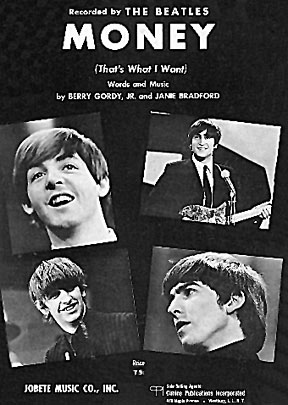 Having just recorded the song for the BBC and having it fresh in their minds, The Beatles thought it would be an excellent contender for possible inclusion on their second British album as they entered EMI Studios two days later, July 18th, 1963, which was their first day of recording for the album "With The Beatles." This evening session in EMI Studio Two, which ran from 7 to 10:45 pm, commenced with starting and completing “You Really Got A Hold On Me” and then laying the groundwork for “Money (That’s What I Want).” At approximately 9, they began work on “Devil In Her Heart” as their third song of the evening. Three live takes were made of the complete song, all four group members playing their usual instruments with all lead and background singing. "Take three" was deemed the best. Having just recorded the song for the BBC and having it fresh in their minds, The Beatles thought it would be an excellent contender for possible inclusion on their second British album as they entered EMI Studios two days later, July 18th, 1963, which was their first day of recording for the album "With The Beatles." This evening session in EMI Studio Two, which ran from 7 to 10:45 pm, commenced with starting and completing “You Really Got A Hold On Me” and then laying the groundwork for “Money (That’s What I Want).” At approximately 9, they began work on “Devil In Her Heart” as their third song of the evening. Three live takes were made of the complete song, all four group members playing their usual instruments with all lead and background singing. "Take three" was deemed the best.
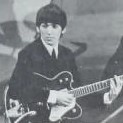 Three overdubs were then performed on top of "take three," which included extra guitar flourishes from George Harrison, double-tracked lead vocals during the verses, and Ringo playing maracas. This brought it to "take six," completing the song as we hear it today. The song was done by approximately 10 pm, which freed them up to attempt recording of the beautiful ballad “Till There Was You,” although they ultimately left this for another time. Three overdubs were then performed on top of "take three," which included extra guitar flourishes from George Harrison, double-tracked lead vocals during the verses, and Ringo playing maracas. This brought it to "take six," completing the song as we hear it today. The song was done by approximately 10 pm, which freed them up to attempt recording of the beautiful ballad “Till There Was You,” although they ultimately left this for another time.
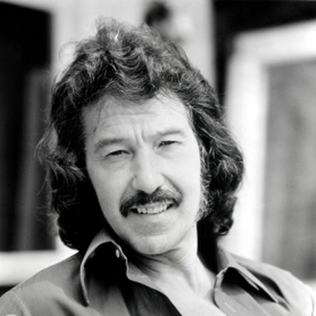 The mono mix of the song (from "take 6") was performed on August 21st, 1963 in the control room of EMI Studio Three, as was the rest of the album that was completed by that point. Only producer George Martin and engineers Norman Smith and Geoff Emerick were present for this session. This is the mono mix heard on the British "With The Beatles" album. The mono mix of the song (from "take 6") was performed on August 21st, 1963 in the control room of EMI Studio Three, as was the rest of the album that was completed by that point. Only producer George Martin and engineers Norman Smith and Geoff Emerick were present for this session. This is the mono mix heard on the British "With The Beatles" album.
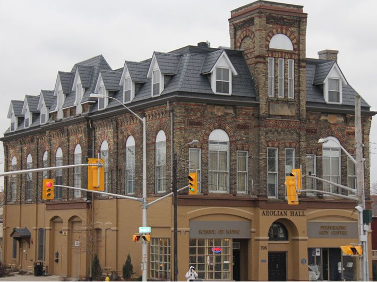 The Beatles brought "Devil In Her Heart" to Studio Two of Aeolian Hall in London on September 3rd, 1963 between 8 and 10:30 pm to record another version of the song for BBC radio. This version was produced by Ian Grant and was broadcast on the 15th and final “Pop Go The Beatles” edition, which was broadcast on September 24th between 5 and 5:29 pm. The Beatles brought "Devil In Her Heart" to Studio Two of Aeolian Hall in London on September 3rd, 1963 between 8 and 10:30 pm to record another version of the song for BBC radio. This version was produced by Ian Grant and was broadcast on the 15th and final “Pop Go The Beatles” edition, which was broadcast on September 24th between 5 and 5:29 pm.
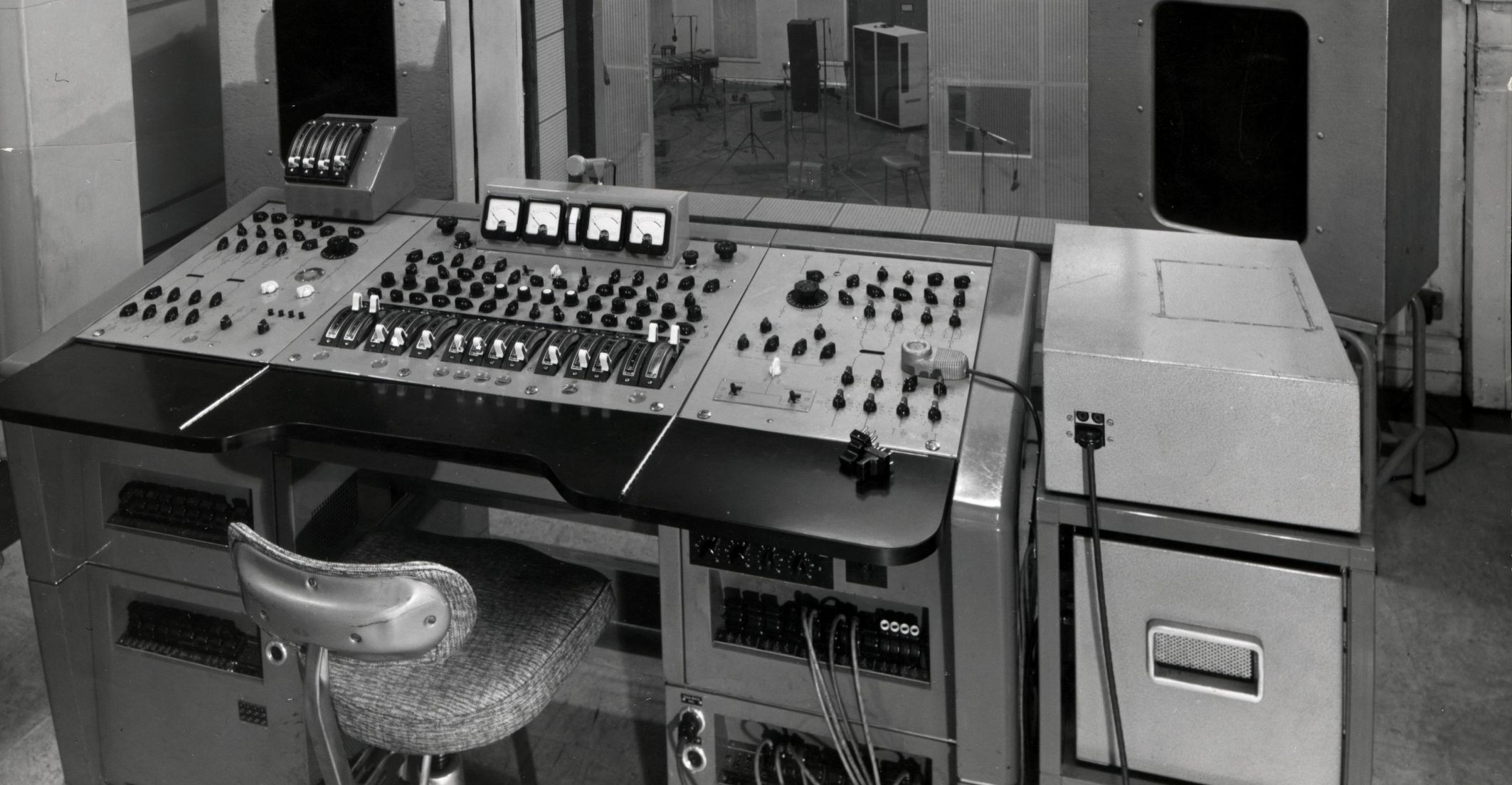 The stereo mix of the song, along with the rest of the "With The Beatles" album, was made on October 30th, 1963, in the control room of EMI Studio Three. This quick three-hour mixing session was attended only by producer George Martin and engineers Norman Smith and A.B. Lincoln. This stereo mix was used for both the stereo and mono versions of "The Beatles' Second Album" released in the US (as detailed below). The stereo mix of the song, along with the rest of the "With The Beatles" album, was made on October 30th, 1963, in the control room of EMI Studio Three. This quick three-hour mixing session was attended only by producer George Martin and engineers Norman Smith and A.B. Lincoln. This stereo mix was used for both the stereo and mono versions of "The Beatles' Second Album" released in the US (as detailed below).
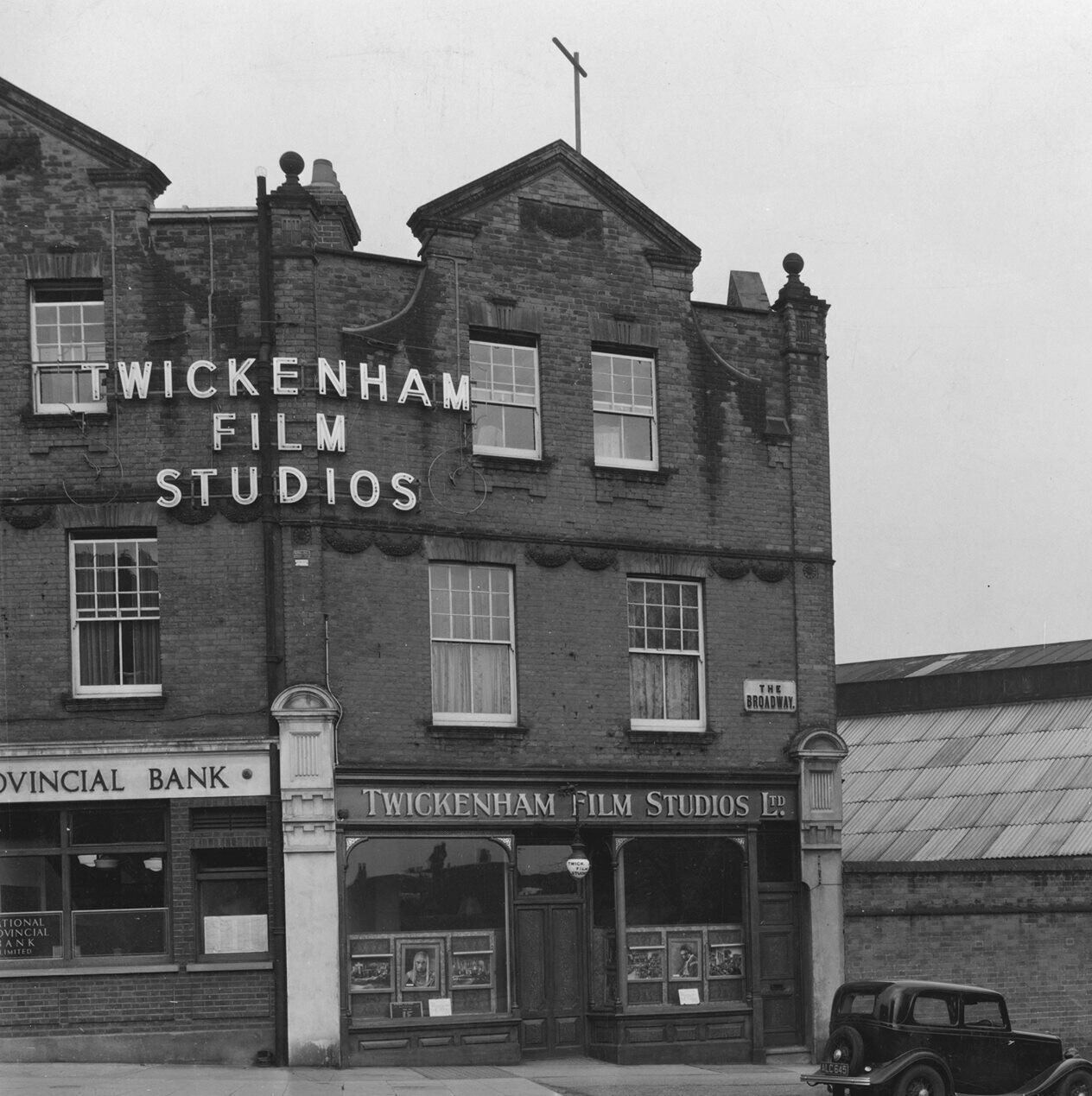 January 7th, 1969, witnessed The Beatles return to the song while in Twickenham Film Studios during rehearsals for the "Get Back / Let It Be" project. This was a brief impromptu run-through, only done because the song they were rehearsing at the time, “Don’t Let Me Down,” featured George Harrison playing guitar work that was similarly phrased to what he did on “Devil In Her Heart.” It therefore reminded them of the song and they reminisced, this rendition (emphasizing the misheard "no-no-nay" lyric) not being included in any official release of these sessions. January 7th, 1969, witnessed The Beatles return to the song while in Twickenham Film Studios during rehearsals for the "Get Back / Let It Be" project. This was a brief impromptu run-through, only done because the song they were rehearsing at the time, “Don’t Let Me Down,” featured George Harrison playing guitar work that was similarly phrased to what he did on “Devil In Her Heart.” It therefore reminded them of the song and they reminisced, this rendition (emphasizing the misheard "no-no-nay" lyric) not being included in any official release of these sessions.
Song Structure and Style
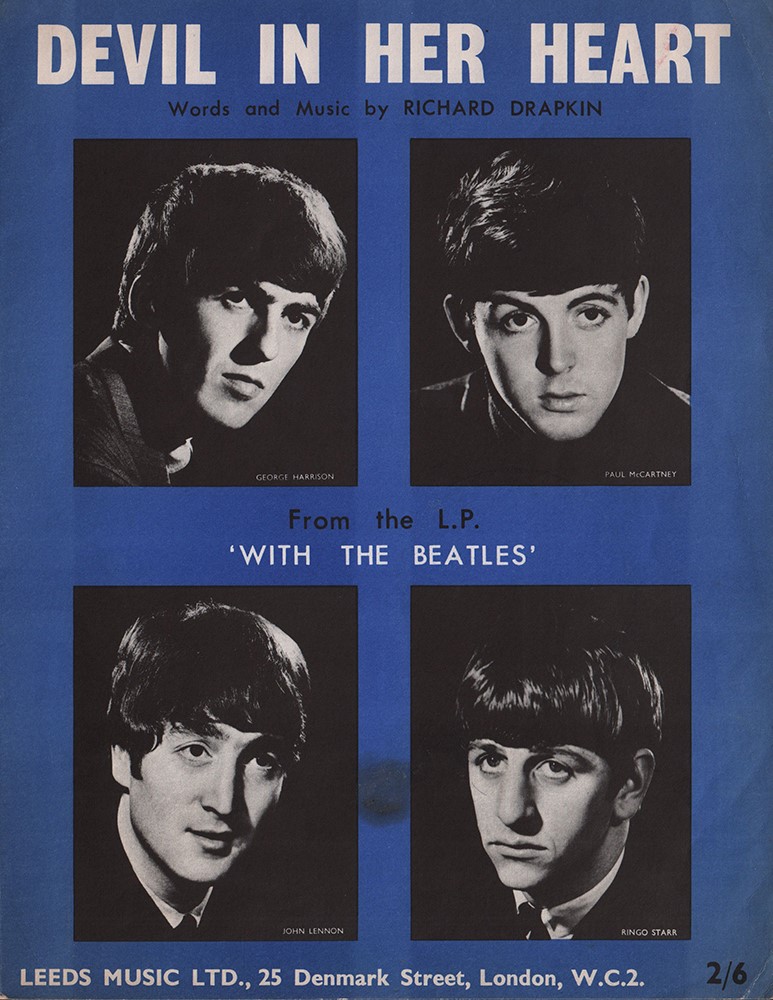 The structure of this song is a unique one for The Beatles up to this point. We see here a back-and-forth pattern between a refrain and a verse. Each refrain and verse contains subtle changes in lyrics so there is not a constant unchangeable bridge or chorus as we’re all used to hearing in The Beatles early catalog. What we end up with in this case is a 'refrain/ verse/ refrain/ verse/ refrain/ verse/ refrain' structure (or abababa), the final refrain being extended for an appropriate conclusion. The structure of this song is a unique one for The Beatles up to this point. We see here a back-and-forth pattern between a refrain and a verse. Each refrain and verse contains subtle changes in lyrics so there is not a constant unchangeable bridge or chorus as we’re all used to hearing in The Beatles early catalog. What we end up with in this case is a 'refrain/ verse/ refrain/ verse/ refrain/ verse/ refrain' structure (or abababa), the final refrain being extended for an appropriate conclusion.
After a percussive count-in from Ringo and a four measure introduction featuring “Latin” sounding guitar phrases, we delve right in to the first eight-measure refrain with harmonic warnings from John and Paul to the lead singer (George) about the dangerous relationship he is in. George replies to every warning with disbelief, as he does twice in the first refrain alone. Also of note is the "break" that occurs before each refrain, something that is featured in most Beatles songs of this era.
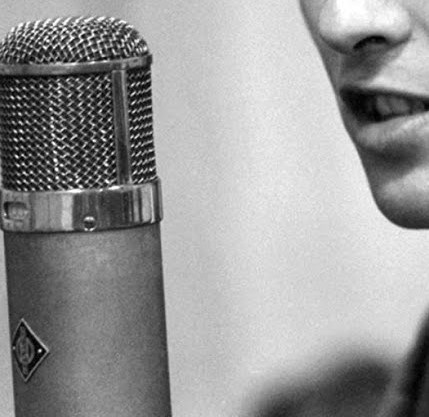 Because of the chord structure of these verses, they actually act as a bridge between each refrain. Bold background harmonies are heard against Harrison’s double-tracked lead vocals throughout the verse up until the last lyric, which brings all three vocalists harmonizing together on the line “she’s an angel sent to me.” The verses are actually nine measures long, extended during this last lyric line to create an adequate segue back into the refrain. Because of the chord structure of these verses, they actually act as a bridge between each refrain. Bold background harmonies are heard against Harrison’s double-tracked lead vocals throughout the verse up until the last lyric, which brings all three vocalists harmonizing together on the line “she’s an angel sent to me.” The verses are actually nine measures long, extended during this last lyric line to create an adequate segue back into the refrain.
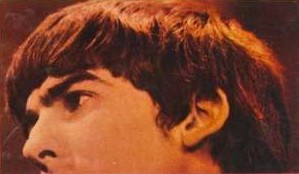 This segues into another refrain that is identical in structure except for different replies from George in his answer lyrics. Then the song moves into yet another verse which is also identical in structure and style apart from different lyrics. This time the background vocals chime in on the final line “listen can’t you see.” This segues into another refrain that is identical in structure except for different replies from George in his answer lyrics. Then the song moves into yet another verse which is also identical in structure and style apart from different lyrics. This time the background vocals chime in on the final line “listen can’t you see.”
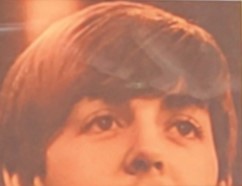 A third refrain then occurs, this one being identical structurally and lyrically to the second refrain except for a couple extra “no”s in George’s lead lines. The third verse which follows changes things up a bit by having the background vocalists (Paul to the fore) sing the first four measures alone, while we get back to the regular three vocalist format for the last five measures, going back to the last line of the first verse, “she’s an angel sent to me.” A third refrain then occurs, this one being identical structurally and lyrically to the second refrain except for a couple extra “no”s in George’s lead lines. The third verse which follows changes things up a bit by having the background vocalists (Paul to the fore) sing the first four measures alone, while we get back to the regular three vocalist format for the last five measures, going back to the last line of the first verse, “she’s an angel sent to me.”
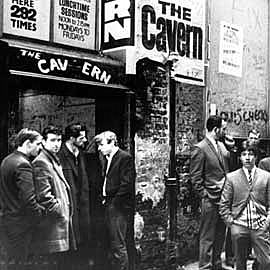 The last refrain is identical to the third refrain, with the exception being that it is actually extended to sixteen measures in order to act as a suitable ending. The last four measures continue the "warning / disbelief" dialog lyrically while we witness a return of the introductory "Latin" guitar phrases at the same time. Instead of the fade-out ending of the original version by The Donays, the group brings the song to a full conclusion similar to how they undoubtedly concluded the song when played it live on stage at The Cavern and elsewhere. The last refrain is identical to the third refrain, with the exception being that it is actually extended to sixteen measures in order to act as a suitable ending. The last four measures continue the "warning / disbelief" dialog lyrically while we witness a return of the introductory "Latin" guitar phrases at the same time. Instead of the fade-out ending of the original version by The Donays, the group brings the song to a full conclusion similar to how they undoubtedly concluded the song when played it live on stage at The Cavern and elsewhere.
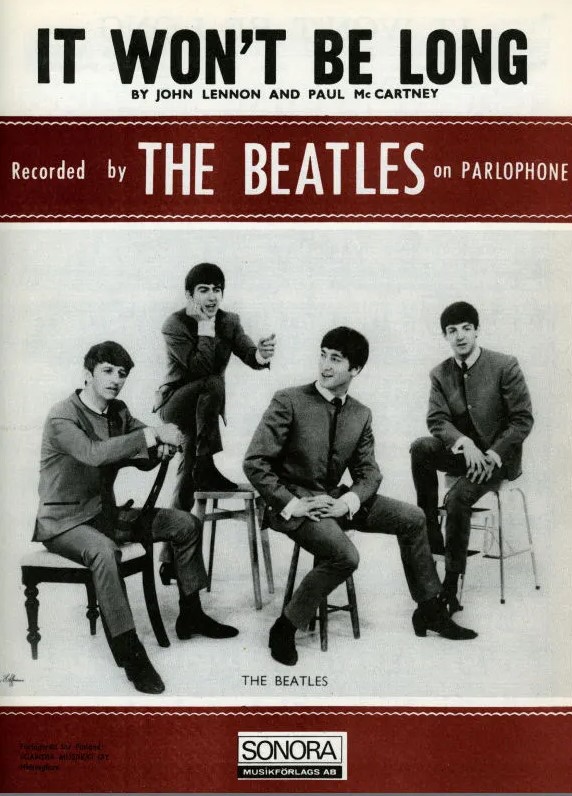 As detailed above, the lyrics are here depicting friends warning the vocalist that his new love interest has a reputation for breaking hearts, while the lead singer counters with disbelief and claims “she’ll never hurt me.” The clever use of lyrics was undoubtedly a feature that attracted The Beatles to the original version, one example being all of the repeated “devil” and “angel” comparisons. Another is the clever rhyming of “don’t take chances if your romance is,” which is similar to many songs in the Lennon / McCartney catalog, such as “it won’t be long till I belong to you.” As detailed above, the lyrics are here depicting friends warning the vocalist that his new love interest has a reputation for breaking hearts, while the lead singer counters with disbelief and claims “she’ll never hurt me.” The clever use of lyrics was undoubtedly a feature that attracted The Beatles to the original version, one example being all of the repeated “devil” and “angel” comparisons. Another is the clever rhyming of “don’t take chances if your romance is,” which is similar to many songs in the Lennon / McCartney catalog, such as “it won’t be long till I belong to you.”
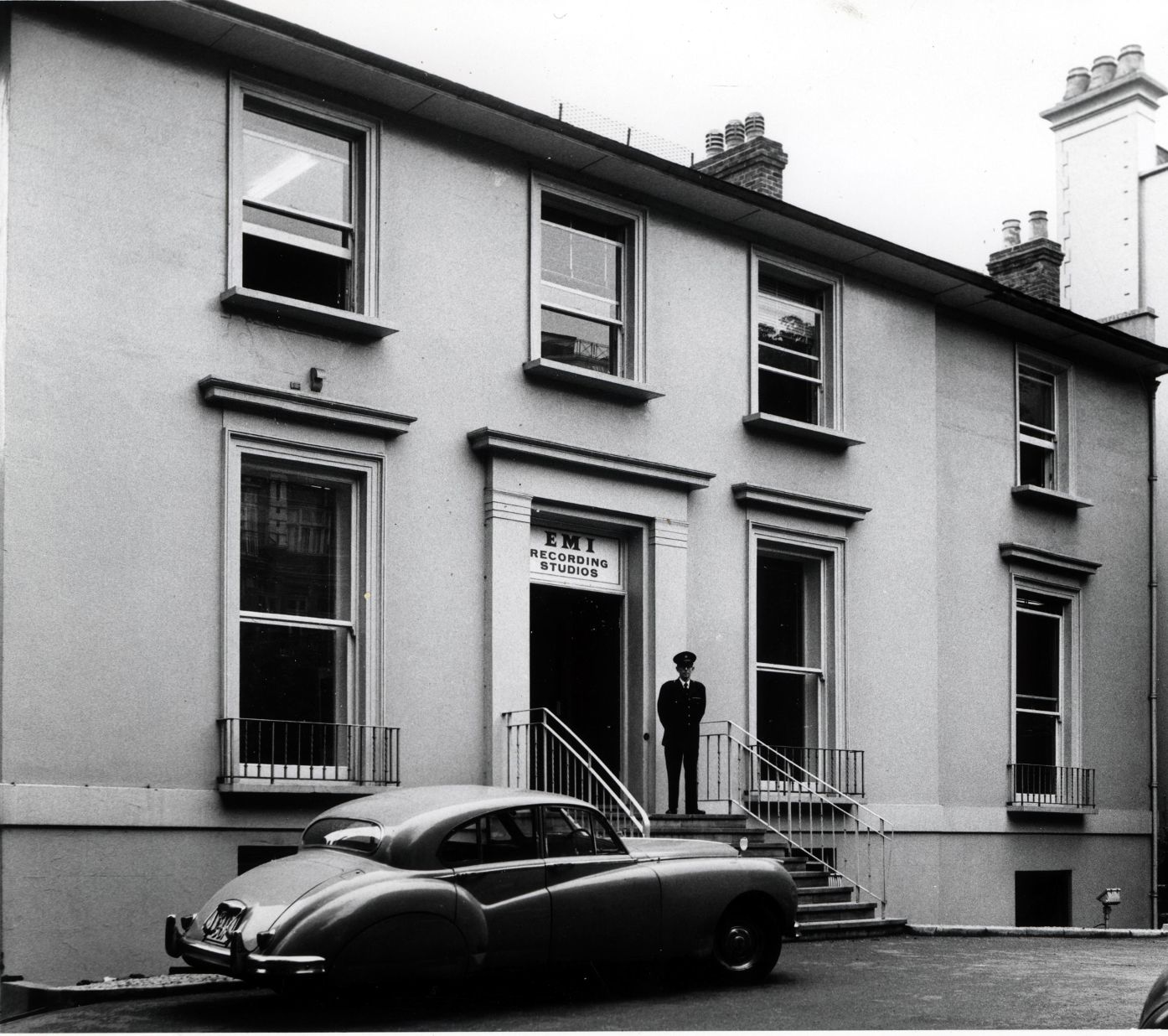 Concerning the lyrics, the group purposely made the gender change from "Devil in His Heart" to "Devil In Her Heart" with all the necessary alterations throughout the song. However, there was one inadvertent error made as well, due to the group trying to decipher the lyrics from the original record. "No, not me will he deceive" was mistakenly interpreted as "no-no-nay will she deceive." Interestingly, they sang the correct line during their BBC performance two days earlier, but changed it to “no-no-nay” when recording it properly in EMI Studios. And when The Beatles returned to the song six years later (January 7th, 1969) for an impromptu run-through of the song, Lennon is heard correcting McCartney's remembrance of the lyrics, still insisting these lyrics as "no-no-nay." Concerning the lyrics, the group purposely made the gender change from "Devil in His Heart" to "Devil In Her Heart" with all the necessary alterations throughout the song. However, there was one inadvertent error made as well, due to the group trying to decipher the lyrics from the original record. "No, not me will he deceive" was mistakenly interpreted as "no-no-nay will she deceive." Interestingly, they sang the correct line during their BBC performance two days earlier, but changed it to “no-no-nay” when recording it properly in EMI Studios. And when The Beatles returned to the song six years later (January 7th, 1969) for an impromptu run-through of the song, Lennon is heard correcting McCartney's remembrance of the lyrics, still insisting these lyrics as "no-no-nay."
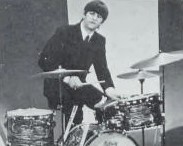 George Harrison gets the nod as the true highlight of the recording, with his "Latin" guitar phrasings and suitable lead vocal work. Ringo also impresses with his Latin-sounding 'bam-boom-boom' drum fills that introduce the song as well as each refrain. His drum style throughout has a rumba rhythm which, with the maraca overdub, creates a convincing Latin feel. His open hi-hat sound, common with early Beatle songs, gives the song a fullness and drive that is lacking on the original version. George Harrison gets the nod as the true highlight of the recording, with his "Latin" guitar phrasings and suitable lead vocal work. Ringo also impresses with his Latin-sounding 'bam-boom-boom' drum fills that introduce the song as well as each refrain. His drum style throughout has a rumba rhythm which, with the maraca overdub, creates a convincing Latin feel. His open hi-hat sound, common with early Beatle songs, gives the song a fullness and drive that is lacking on the original version.
 Also noteworthy are the background vocals of John and Paul, which emphasize an effective 'nagging' quality that is appropriate to the lyrics of the song. Although the rhythm guitar and bass are rudimentary throughout, Lennon and McCartney provide these essential ingredients to create the full picture and round out an impressive cover version of an obscure song. Also noteworthy are the background vocals of John and Paul, which emphasize an effective 'nagging' quality that is appropriate to the lyrics of the song. Although the rhythm guitar and bass are rudimentary throughout, Lennon and McCartney provide these essential ingredients to create the full picture and round out an impressive cover version of an obscure song.
American Releases
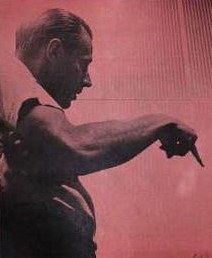 “Devil In Her Heart” was premiered in America on April 10th, 1964, as the fourth track on side one of the million selling Capitol release "The Beatles' Second Album." Incidentally, the mono version of this album contained a "Type B" foldover mix of the song created by Capitol Records that combined both channels of the stereo mix into one instead of the legitimate mono mix originally created by George Martin, while the stereo version contained a bit of added reverb. On January 21st, 2014, this album was released on compact disc for the first time, the mono and stereo mixes being contained on a single CD. “Devil In Her Heart” was premiered in America on April 10th, 1964, as the fourth track on side one of the million selling Capitol release "The Beatles' Second Album." Incidentally, the mono version of this album contained a "Type B" foldover mix of the song created by Capitol Records that combined both channels of the stereo mix into one instead of the legitimate mono mix originally created by George Martin, while the stereo version contained a bit of added reverb. On January 21st, 2014, this album was released on compact disc for the first time, the mono and stereo mixes being contained on a single CD.
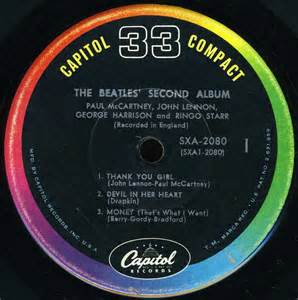 A second release also occurred in April of 1964 with Capitol's release of the "Compact 33" EP rendition of the "Second Album" intended for juke box use throughout the country. This rare disc contains six songs from the album, the second on side one being "Devil In Her Heart." A second release also occurred in April of 1964 with Capitol's release of the "Compact 33" EP rendition of the "Second Album" intended for juke box use throughout the country. This rare disc contains six songs from the album, the second on side one being "Devil In Her Heart."
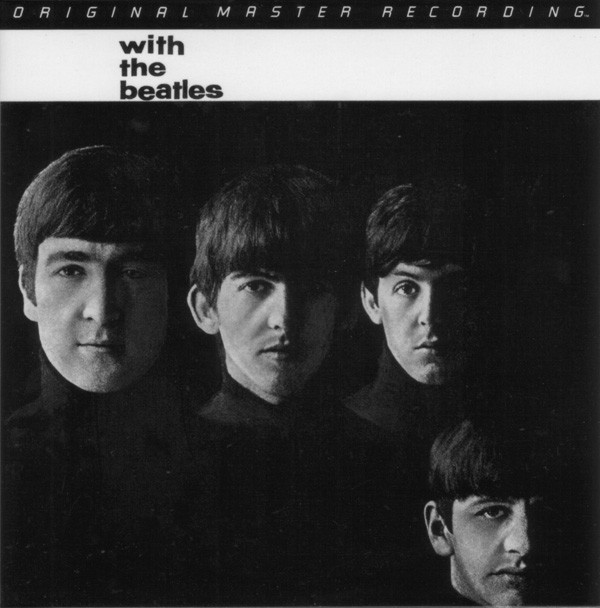 The first time the original British "With The Beatles" album was made available in the US was the "Original Master Recording" vinyl edition released through Mobile Fidelity Sound Lab in January of 1987. This album included the song "Devil In Her Heart" and was prepared utilizing this half-speed mastering technology from the original master tape on loan from EMI. This title had a limited production, reportedly because of a damaged metal part that was needed for pressing the vinyl. Therefore, this album is said to be the rarest and most valuable Beatles album in the “Original Master Recording” series." The first time the original British "With The Beatles" album was made available in the US was the "Original Master Recording" vinyl edition released through Mobile Fidelity Sound Lab in January of 1987. This album included the song "Devil In Her Heart" and was prepared utilizing this half-speed mastering technology from the original master tape on loan from EMI. This title had a limited production, reportedly because of a damaged metal part that was needed for pressing the vinyl. Therefore, this album is said to be the rarest and most valuable Beatles album in the “Original Master Recording” series."
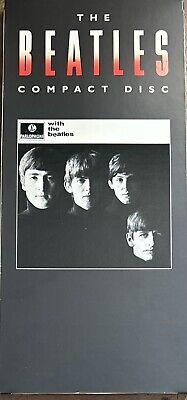 February 26th, 1987 saw the US release of the original British "With The Beatles" album on compact disc in mono, which featured the song. A vinyl edition of this album was released in the US on July 21st, 1987. The original stereo version was eventually released on remastered CD on September 9th, 2009 and on vinyl on November 13th, 2012. February 26th, 1987 saw the US release of the original British "With The Beatles" album on compact disc in mono, which featured the song. A vinyl edition of this album was released in the US on July 21st, 1987. The original stereo version was eventually released on remastered CD on September 9th, 2009 and on vinyl on November 13th, 2012.
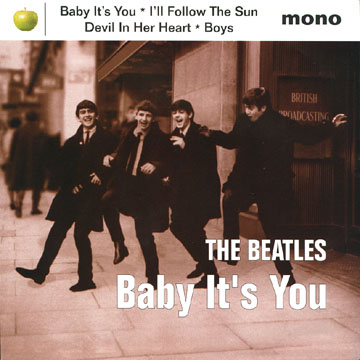 Since no actual compilation album contained the song throughout the years, we had to wait until March 23th, 1995 to see another official release. As a promotional tool for the recently released “Live At The BBC” album, Apple released a four song EP entitled “Baby It’s You.” This EP contained the version of “Devil In Her Heart” that The Beatles recorded for the BBC show “Pop Go The Beatles” on July 16th, 1963, two days before their official album version was recorded on July 18th. The EP, which highlighted the version of “Baby It’s You” that appeared on the “Live At The BBC” album, peaked at #67 on the Billboard singles chart. Since no actual compilation album contained the song throughout the years, we had to wait until March 23th, 1995 to see another official release. As a promotional tool for the recently released “Live At The BBC” album, Apple released a four song EP entitled “Baby It’s You.” This EP contained the version of “Devil In Her Heart” that The Beatles recorded for the BBC show “Pop Go The Beatles” on July 16th, 1963, two days before their official album version was recorded on July 18th. The EP, which highlighted the version of “Baby It’s You” that appeared on the “Live At The BBC” album, peaked at #67 on the Billboard singles chart.
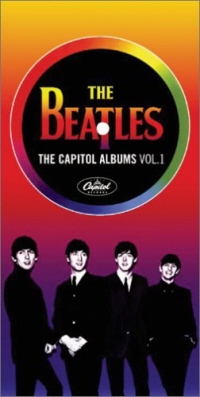 The song is also featured on the November 15th, 2004 released box set “The Capitol Albums, Vol. 1,” in stereo and "Type B" foldover mono as originally contained on "The Beatles' Second Album." The song is also featured on the November 15th, 2004 released box set “The Capitol Albums, Vol. 1,” in stereo and "Type B" foldover mono as originally contained on "The Beatles' Second Album."
On September 9th, 2009, the CD box set “The Beatles In Mono” was released, which features a clear mono remastered version of "Devil In Her Heart." The vinyl edition of this box set was first released on September 9th, 2014.
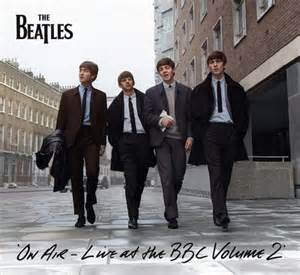 November 11th, 2013 was the release date for the album "On Air - Live At The BBC Volume 2." Included therein is yet another version of "Devil In Her Heart," this one recorded on September 3rd, 1963 for the radio program "Pop Go The Beatles." There are a few differences quite noticeable here. First, notice that George reverted to singing "no, not me will she deceive" at this point instead of his "no-no-nay will she deceive" as on the original Beatles recording. Also, George repeats the lyrics of the first verse during the third verse, singing "but her eyes they tantalize...lips they really thrill me," a second time in the song unlike their original version. Finally, George held off his final guitar passage at the end of the song so he could sing his line "she's an angel sent to me" and then, when this segment is immediately repeated, he didn't sing this final line but played the guitar passage. This would seem to indicate that it was difficult to perform both at the same time during this live studio recording. November 11th, 2013 was the release date for the album "On Air - Live At The BBC Volume 2." Included therein is yet another version of "Devil In Her Heart," this one recorded on September 3rd, 1963 for the radio program "Pop Go The Beatles." There are a few differences quite noticeable here. First, notice that George reverted to singing "no, not me will she deceive" at this point instead of his "no-no-nay will she deceive" as on the original Beatles recording. Also, George repeats the lyrics of the first verse during the third verse, singing "but her eyes they tantalize...lips they really thrill me," a second time in the song unlike their original version. Finally, George held off his final guitar passage at the end of the song so he could sing his line "she's an angel sent to me" and then, when this segment is immediately repeated, he didn't sing this final line but played the guitar passage. This would seem to indicate that it was difficult to perform both at the same time during this live studio recording.
Live Performances
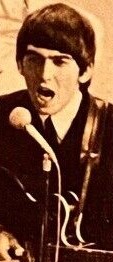 Starting in October of 1962, shortly after purchasing the original record, The Beatles quickly included it in their set lists for live performances that year. They continued playing the song in early 1963 when they were on stage for longer periods of time, such as their more relaxed Cavern Club appearances in Liverpool earlier in the year. As for providing George Harrison a vocal spot in their stage shows later in 1963 and into 1964, they chose instead to feature the other Harrison cover song on the “With The Beatles” album, “Roll Over Beethoven.” Starting in October of 1962, shortly after purchasing the original record, The Beatles quickly included it in their set lists for live performances that year. They continued playing the song in early 1963 when they were on stage for longer periods of time, such as their more relaxed Cavern Club appearances in Liverpool earlier in the year. As for providing George Harrison a vocal spot in their stage shows later in 1963 and into 1964, they chose instead to feature the other Harrison cover song on the “With The Beatles” album, “Roll Over Beethoven.”
Conclusion
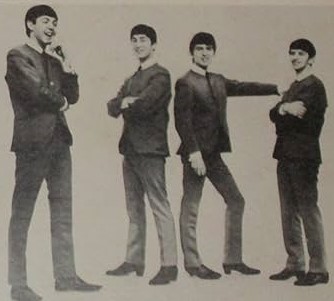 The Beatles, being true aficionados of the American "girl group" music of the early '60s, were attracted to this powerful, albeit obscure, example of songwriting craftsmanship. Listening to the original version, you can experience what appealed to George Harrison in particular, especially the guitar flourishes as well as the fun interplay between the lead and background vocalists. Listening to The Beatles version, you can appreciate that the band put a lot of thought, as well as time and effort, into depicting the true essence of the song in a fully convincing manner. The Beatles, being true aficionados of the American "girl group" music of the early '60s, were attracted to this powerful, albeit obscure, example of songwriting craftsmanship. Listening to the original version, you can experience what appealed to George Harrison in particular, especially the guitar flourishes as well as the fun interplay between the lead and background vocalists. Listening to The Beatles version, you can appreciate that the band put a lot of thought, as well as time and effort, into depicting the true essence of the song in a fully convincing manner.
Song Summary
"Devil In Her Heart”
Written by: Richard Drapkin
- Song Written: May, 1962 (approx.)
- Song Recorded: July 18, 1963
- First US Release Date: April 10, 1964
- First US Album Release: Capitol #ST 2080 “The Beatles’ Second Album”
- US Single Release: Apple #58348 “Baby It’s You” EP
- Highest Chart Position: n/a
- British Album Release: Parlophone # PCS 3045 “With The Beatles”
- Length: 2:27
- Key: G major
- Producer: George Martin
- Engineers: Norman Smith, Richard Langham
Instrumentation (most likely):
- George Harrison – Lead Vocals, Lead Guitar (1962 Gretsch 6122 Country Gentleman)
- John Lennon - Harmony Vocals, Rhythm Guitar (1958 Rickenbacker 325)
- Paul McCartney - Harmony Vocals, Bass Guitar (1961 Hofner 500/1)
- Ringo Starr – Drums (1963 Ludwig Downbeat Black Oyster Pearl), Maracas
Written and compiled by Dave Rybaczewski
|
IF YOU WOULD LIKE TO MAKE A DONATION TO KEEP THIS WEBSITE UP AND RUNNING, PLEASE CLICK BELOW!
Sign Up Below for our MONTHLY BEATLES TRIVIA QUIZ!
|